BLACK SOCIAL HISTORY Is there a ‘problem’ with Black men?
black educational underachievement, Black family breakdown, black gangs, black men and the criminal justice system, black mental illness, black on black crime, lee pinkerton
At the start of 2008 a friend of mine predicted that it would be the year of the Black Man, and as the year evolved he was proved to be right.
It was the 40 year anniversary of Martin Luther King’s assassination, but it was also the year the world had its first year Black F1 racing champion (Lewis Hamilton), the year a Black man captained the England football team (Rio Ferdinand), and the first Black man to manage a premiership football team (Paul Ince). Most significantly it was the year that Barack Obama became the first Black President of the United States. When Obama won the Presidential election, Black people the world over were filled w
ith pride and new hope. On the morning after his election victory I like many others received this text message.
ith pride and new hope. On the morning after his election victory I like many others received this text message.
Rosa Parks sat,
so that Martin Luther King could walk,
so that Barack Obama could stand,
so that our children can fly.
But were Black people right to feel such pride? Barack Obama can be claimed by whites just as much as he is by Blacks. He is infact of dual racial heritage, as is Lewis Hamilton, and Rio Ferdinand. And Obama was not part of that American civil rights legacy of struggle. None of the ancestors on the Black side of his family came to America in slave ships, they were never cotton pickers or share croppers, and they never marched for freedom in the 60’s. When his African father met his white mother it was as an overseas student at the University of Hawaii. Obama spent only a matter of days with his father and was raised by his white mother and his white grandparents. It occurred to me that maybe it was because of his unique racial heritage that he had the confidence to run for President when no-one gave him a chance. He didn’t listen to all those people, (particularly Black ones, myself included) that said a Black man could never be President. Just like those who said that ‘Black men don’t play Golf’ before Tiger Woods came along, or that ‘F1 racing is not a Black man’s sport’ before Lewis Hamilton. Maybe it was because he wasn’t hampered by those shackles of mental slavery that he was able to succeed so spectacularly.
But what about the rest of us? Can the success of Obama, and Hamilton, and Ferdinand inspire Black men throughout the diaspora to new heights? We sure as hell hope so, because aside from those success stories, most ordinary Black men are struggling. We are over-represented in all the places that we don’t want to be – the school exclusion figures, the young offenders institutions, the prisons, and the psychiatric units – and under-representedin all the places we should be – university graduation ceremonies, in the boardrooms, at the business breakfasts and business dinners, at the school parents’ evenings, on the schools’ boards of governors, even in the park playing ball with our sons.
In the States 47% of the penal population is African-American, but only 3.5% of the college students. We are 37% of the schools suspensions and have the lowest life expectancy. We have the highest homicide and cancer rates, and over 30% of the African-American males between 18 and 25 are unemployed.
In the introduction to his excellent book Outliers, another high achiever of mixed parentage Malcolm Gladwellargues that when looking at success stories we should not ask ‘what are they like?’ but rather examine the circumstances of their birth for clues to the secrets of their success. In my examination of the failure of Black men I will do the same thing and argue that when we look at the many areas in which Black men are failing, we should not look at the particular failings of these individuals, but instead look at the circumstances of their birth for clues to the origins of this malaise that blights the Black community. This is not to let off the hook those Black men who are bad fathers, or gang members, or drug dealers, or prison inmates, but rather to understand the phenomenon. Once we can understand the causes of the problem we can go about changing it.
In The Problem With Black Men I have separated what I see as the Black community’s main problems into five areas and address each problem in turn with its own chapter. At the end of each chapter I offer solutions – things that can be done on a personal individual level to improve the situation. For each of these topics there are those that argue that the root cause is institutional racism. Black boys are excluded from schools in such numbers because of the racism of the teachers. They enter the penal system in such numbers because of the racism of law enforcement officers, and are misdiagnosed as schizophrenic because of the racism of mental health professionals. They struggle to find employment because employers are unwilling to employ Black men, and thus contribute to the break-up of the Black family because whilst Black men are denied access to the world of work, Black women are let through, and are thus leaving their Black men behind. All of these explanations maybe true, but if we just blindly accept them then we are accepting the role of mere victims. We are giving all the power to ‘the other man’, and there is nothing that we can do except to ask very politely if the white man would be so kind as to remove his foot from our necks! I for one am tired of waiting for a kindly white man to come along and save us. That is why, whilst acknowledging the role that white racism has to play, I am putting the onus firmly on Black folks, as the causes of and the solutions to our problems.
The Problem With Black Men is available now on Amazon on both paperback and Kindle formats
The Oxbridge mafia and the hollow promise of equal opportunities
Posted: May 8, 2013 in BlogsTags: Curtis Walker, Eton mafia, Felix Dexter, Jo Johnson, Kick Racism out of football, Marcus Brigstocke, n-word, Oxbridge mafia, PFA, Reginald D. Hunter
On the morning of May 2nd the Today programme reported the story of a performance by Black comedian Reginald D. Hunter at the Professional Footballers’ Association’s annual awards dinner. Hunter is known for using the ‘n-word’ in his comedy routines, and this night’s performance was no exception.
This was particular embarrassing for the PFA as they have been fighting the battle against racial abuse in the game for some years now, not least in their promotion of the ‘Lets Kick Racism Out of Football’ campaign. Now the use of the n-word is a contentious issue. As I have previously said on this blog I feel that white people should never use the word in any circumstance, but I acknowledge that many African-Americans reserve the right to use the term in an attempt to reclaim it. But this post is not about who or when it is appropriate to use that word. What’s got my back up is who the Today programme thought was qualified to discuss the issue. The best participants for the debate would have the Black PFA chairman Clarke Carlisle and Reginald Hunter himself. But no such luck. If they were unavailable then how about a representative from the ‘Kick it Out’ campaign, or a Black ex-footballer like John Barnes who experienced having this term shouted at them from the terraces? No? Well how about a Black comedian? No, to debate this sensitive issue the Today programme chose white comedian Marcus Brigstocke and white comedienne Rhona Cameron. So on BBC Radio’s flagship news programme we have the spectacle of three white people, none of whom have ever been on the receiving end of that term, discussing in which (comedic) circumstances it is allowable to use it. Could no-one on the production team see what was wrong with this picture? They really couldn’t find anyone more suitable – no Black comedian, no anti-racist campaigner, no one? Did they try and fail or could they just not be bothered?
The anomaly was made all the more stark by the fact that not one but three Black comedians had featured on this same station’s airwaves just the night before! Felix Dexter is a regular feature on the comedy series ’Down The Line’ (Wednesdays at 6pm) and both Nathan Canton and Curtis Walker appeared on the late night radio sit-comCan’t Tell Nathan Caton Nothing (Wednesdays at 11pm). Is it possible that a Black comedian can appear on Radio 4 and yet no Today programme researchers can get hold of their phone numbers? Or maybe Black comedians don’t get up early enough to appear on Today. (The BBC must think that all Black people keep vampire hours, as any show for us seems to be broadcast after 11pm!)
Let me restate, this blog-post is not about the ‘n-word’, it is about the BBC’s attitude to diversity. It’s now over a decade since the BBC’s then Director General Greg Dyke declared that the BBC was ‘hideously white’. Since then little has changed in terms of its employment practices. Back in 1997 when I worked for a brief period in the Radio 1 press office, there were only two other Black men in the building – one fixed the computers and the other one was the security guard. And this was hip and trendy Radio 1. Imagine what it was like at stuffy Radios 3 and 4? Whiter than a snow storm! And though the BBC pay lip-service to increasing the diversity of their work-force, things don’t seem to be changing. Even the ‘institutionally racist’ Metropolitan Police are doing better, (at least they let in working-class whites) and this lack of respect on the Today programme shows why. The producers, presenters and execs continue to recruit from their tight little circle of white, middle-class Oxbridge cronies, even when they are debating Black issues! It is a horrifying fact all the male Executive Directors on the BBC Executive Board are white, privately educated and went to either Oxford or Cambridge. So much for diversity!
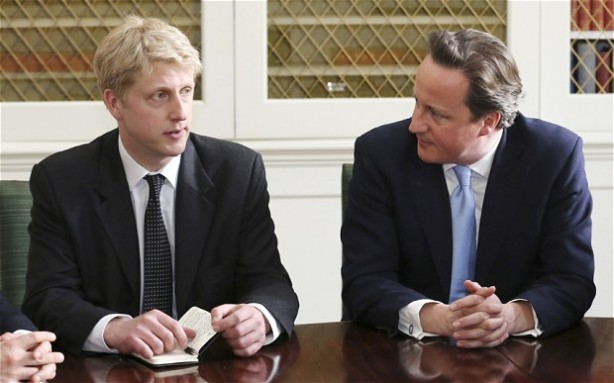
Jo Johnson and David Cameron – ‘Eton Mafia’, ‘Old School tie’, ‘Jobs for the boys’, call it what you want, it adds up to the same thing.
It is the same situation in many institutions, not least our own government. Witness only last month, the appointment of Jo Johnson as the head of the Number 10 Policy Unit. Mr Johnson, like Prime Minister Cameron and Chancellor Osborne, and so many in the Tory cabinet is an old Etonian, Oxbridge graduate and former member of the infamous Bullingdon drinking club. Oh, and co-incidentally he’s also the younger brother of London Mayor Boris Johnson. David Cameron dismissed accusations of cronyism, arguing that he’s only hiring the best brains for the job. But can’t he see how bad it looks? This small band of white, middle-class, public-school boys dominate our government, our judiciary and our media, and it seems no-one outside of their clique can get a look in. They not only control our parliament, but also our airwaves. They not only make the laws, but also set the political and news agenda. From the outside, it looks like if you’re Black and/or working class the only way you can get a full-time job at Broadcasting House or the Houses of Parliament, is if your pushing a mop or checking security passes.
In closing I would like to remind our heads of government, and those at the BBC, of the words of an old song by Billy Paul.
“Somebody’s knocking on the door, somebody’s ringing the bell,/ Do me a favour, open the door, and let ‘em in.”
If you’d like to read more about the issues raised in this blog post, click on the link to check out my new book ‘The Problem With Black Men’, available now on Amazon.
If you want an easy life ……. don’t marry a Black man
Posted: April 25, 2013 in BlogsTags: 27 Dresses, Black families, Black husbands, Crash, Fairy Tales, lord John Taylor, romance,Romantic comedies, Sex and The City, The Fresh Prince of Bel Air, The Pursuit of Happyness
The last big argument I had with my wife was about the movie 27 Dresses. For those not familiar with it, it tells the story of Jane played by actress Katherine Heigel, who is always the bridesmaid and never the bride – hence her collection of 27 bridesmaid dresses.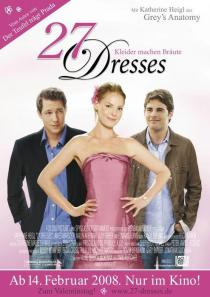

I haven’t actually seen it, but it’s a romantic comedy so you can guess the plot. Katherine Heigel’s character, always unlucky in love, finds her potential Mr Right, and the majority of the film is taken up with the ‘will-they/wont-they’ get it together plot-line. I didn’t think my wife should be wasting her time watching such mindless drivel, and I told her so. She didn’t take kindly to my advice.
I hate romantic comedies, and for that matter Fairy Tales, for the lies that they have indoctrinated women with. The plot of all these stories is the same. A damsel is in distress, and only a ‘knight in shining armour’ can save her from her plight. Check Cinderella – Cinders lives a life of druggery and servitude in the service of her two ugly sisters, from which she can only escape when she is rescued by with Prince Charming. Or Rapunzel, trapped in a tall prison who can only be freed by the intervention of a brave Prince. Or Sleeping Beauty, cursed by the evil witch to sleep in a coma-like state, caused by a spell which can only be broken by true love’s first kiss.
Snow White and the Seven Dwarves, Beauty and the Beast, its all basically the same story.
Snow White and the Seven Dwarves, Beauty and the Beast, its all basically the same story.
It is this same narrative that has driven six year’s worth of Sex And The City (albeit updated for adult tastes with more bedroom action) as heroine Carrie Bradshaw waits in anticipation for Mr Big.
And by repeating these stories to our little girls, we are teaching them that they can only find true happiness through the love of a good man. And when these girls become women, and find their Mr Right/Prince Charming, and succeed in having their longed-for fairy tale wedding, and then find that their life has not become ‘happy-ever-after’, they blame their partner for not doing his job; not fulfilling his job description!
This is part of the reason that more divorce proceedings are brought by disgruntled wives than by unhappy husbands. If a man is unhappy in his marriage, he will grin and bare it – spend more time at work, or down the pub, or on the X-Box, or have an affair! If a woman is unhappy with her marriage – she wants out. Since she’s unhappy she reasons, she must obviously be with the wrong man, and so must extricate herself from this situation for another roll of the dice to try again.
This situation is bad enough, but if you add the racial element into it, it gets even worse. For though your Black beau, may be talk, dark and handsome, charming, charismatic, good in bed, etc, etc, your lives together may not turn out to be as idyllic as you had hoped on the day he carried you over the threshold. As my uncle used to say ‘life is hard for a poor Black man’s pickney’. So ladies, if you think you’ve met your Will Smith/Barack Obama/Jay-Z, before he ‘puts a ring on it’ ask yourself these few questions.
1) Are you comfortable with being the main-breadwinner?
Even though neither of you may be planning on this situation at the outset, it may later turn out to be the case. I’m not asking you to take on ‘waste-men’ and free-loaders, but some Black men don’t seem to be able to get a break, no matter how hard they try. (Rather than watching a romantic comedy I’d direct you at this point to Will Smith’s movie ‘The Pursuit of Happyness for illustration).
Unless you’ve got friends in high-places, its hard to get a job for everyone these days, for Black men, even more so. Research by the Office of National Statistics published in 2012 found that unemployment rates for 16-24 year olds from African and African-Caribbean background are double that of white job seekers, with 56% of Black men being out of work.
Even with the right qualifications, success is still far from assured. As far back as the early 90s, studies showed that Black graduates had a harder time finding suitable employment. (I was unemployed for 9 months, even after getting a Masters’ degree).
If he is lucky enough to find employment, after some time he may find himself frustrated at his lack of advancement, his head-aching by banging it on the glass ceiling, or the petty humiliations that he must face in order to keep that job. (Another film tip – check Terrence Howard’s role in Crash).
2) Are you both prepared for him to take the role of the house-husband if that makes better financial sense? It hit the news last month that there has been an increase in men staying at home while wifey goes out to bring home the bacon. For the reasons outlined above, this is an even more likely scenario for Black couples. Anyone with kids knows that childcare costs nowadays are prohibitive. If you earn more than him, it may make more sense for him to stay at home and look after the kids, and for you to return to work, rather than vice versa, than for you both to work and pay through the nose for childcare.
3) Can you be patient with him if he struggles with the role of a father? You may be less than happy with your partner’s contribution in the parent stakes, but if he’s anything like me, and many Black men like me, he’s learning on the job. If he had no father figure in his own life, his only knowledge of what fathers do is from seeing Cliff Huxtable in The Cosby Show or Phillip Banks in The Fresh Prince of Bel-Air.
And those programmes never showed the dads changing nappies, or making bottles, or walking their kids to school in the morning. I’m not defending dead-beat dads, infact I’m the hardest on them (see my previous blog on absentee fathers). I’m just saying be patient with men who may not have even seen what a real Dad is supposed to do up close, before they became one.
4) Will you stick by him if he ends up in jail? Of course you wouldn’t think of marrying a career criminal, but due to the way the Criminal Justice system works in this country, too many Black men find themselves being pulled into the system. ANY Black man can end up in Jail, not just gangstas – just ask former Tory peer Lord Taylor).
Evidence from the Home Office’s Offending Crime and Justice survey in 2003 found that white males aged 10-25 were far more likely to have committed an offence within the last year than young males in other groups, but once young Black people committed an offence, they were more likely to come to the attention of the police. Black people of all ages are three times more likely to be arrested than white people, six times more likely to be arrested for drug offences, 11 times more likely to be imprisoned, and are up to 26 times more likely to be stopped and searched than their white counterparts. Whereas Black young offenders accounted for 6% of total offences in 2004-05 they received 11.6% of total custodial sentences.
5) Don’t call the Police on Him. I know of one sister who called the Police on her husband because they were having a heated argument, and she wanted him out of the house. Listen ladies, unless your life is in mortal danger, don’t ever call the Police on a brother. Apart from the fact that the Police don’t need any encouragement to harass Black men, with the rate that brothers die in Police custody, that may be the last time you see him alive! You might want him out, but surely you don’t want him dead!
Finally, before you walk out that door…………..
There ARE valid reasons to end a marriage, but just because you’re not happy anymore isn’t one of them. If he’s trying, cut him some slack. As Chris Rock once said, “I’m not moving back in with my mother cos you ain’t in love!” But what if you just can’t stand him anymore? Maybe he’s making no effort to find a job, or he’s gambling away all your hard-earned money at the Bookies, or he’s cheating on you. Before you leave him, just spare a thought for the kids. You may not think that you need him in your life, but they do.
In 1996 a University of California study found that boys raised without their fathers are more than twice as likely to engage in delinquent behaviour, and that girls in the same situation are more than twice as likely to become teenage mothers. A 1998 study by researchers at Princeton University said that growing up in a single parent home roughly doubles a child’s propensity to commit crime.
Many women will complain about their partners’ lack of romance – the absence of roses and love poems and breakfast in bed. But is that really what marriage is about? What is more important in making your marriage/family life run smoothly? Is it rose petals on the pillow and candle-lit dinners, or putting the bins out and making sure the electricity bill is paid on time? Would you prefer a man who runs a bubble bath for you, or cleans out the gutters and mows the lawn? Ladies, do you want a man with bling and swagger, or a man of commitment and staying power? A player or a stayer? (And no you can’t have both).
I’m not saying that a woman can never be happy if married to a Black man. (I hope that on at least a few days of each month, my wife can say that she’s happily married). What I’m saying is that it won’t be easy. So if you think the struggle is over as soon as you successfully get him to walk you up the aisle, and you’re all set up for a happily ever after………….. think again.
As a parting thought I‘d like to share this quote that I recently saw on twitter.
“A wise woman knows the importance of speaking life into her man. If you love him: believe in him, encourage him and be his peace.”
If you’d like to read more about the issues raised in this blog post, click on the link below to check out my new book ‘The Problem With Black Men’, available now on Amazon.
Has R&B become white?
Posted: April 2, 2013 in BlogsTags: Adele, Anthony Hamilton, BB King, Blue-eyed soul, Elvis Presley, John Lee Hooker, Justin Timberlake, Rhythm and Blues, soul music, The Blues
Who’s the king of R&B music right now? It’s no longer R.Kelly. Though he seemed to have the midas touch back in the 90s and early 00s, his career hit the skids after those child-sex allegations. It’s not D’Angelo. After two classic albums, like those boys from Jodeci he seemed to self-destruct. It’s not Usher or Ne-Yo. Those guys are off making funny European house/pop music with David Guetta. No in 2013 the king of R&B is …………..Justin Timberlake.
Jay Z gave him the stamp of approval by appearing on ‘Suit and Tie’, the first single from his new album, and you know that J only hitches his cart to winners (previously collab-ing with R.Kelly, Pharrell and most recently Kanye West). Sales of JT’s new album The 20/20 Experience broke one million sales after just a few days in circulation.
And who is the R&B Queen to join Justin on the throne? Its not Beyonce or Rhianna. The music they are making these days could not be described as R&B. Its not Brandy or Monica. It’s a long time since they argued over who’s boy it was. Mary J Blige used to be called the Queen of Hip-Hop Soul, but she seems more interested in acting and commercials than singing these days. (Maybe that’s why Obama jumped over her and went straight from Aretha to Beyonce to sing at his inauguration?) Maybe its Adele. Her vocals could certainly be described as soulful, and she’s sold more units than any other female artists in 2012 (her Grammy-winning “21” topping the U.S. album sales for two years running, selling 4.41 million units in the States alone). And there are plenty other soulful white girls
que-ing up behind her like Duffy, Joss Stone (and not forgetting the dearly departed Amy Winehouse).
que-ing up behind her like Duffy, Joss Stone (and not forgetting the dearly departed Amy Winehouse).
There have always been white R&B singers ‘given a pass’ by the Black audience. Going back to artists like Dusty Springfield and Teena Marie (the first white artist signed to Motown) in the 60s and 70s, to Hall and Oates and Lisa Stansfield in the 80s, to Jamiroquai, Jon B, and Robin Thicke in the 90s and 00s. They even had their own sub-genre called ‘Blue-Eyed Soul’. But the difference now is that the white artists producing soul out-number the Black ones! When I listen to shows on the radio purporting to be playing new R&B I’m left confused. I hear hip-hop, I hear dance music, but I don’t hear much R&B. Those formally prominent R&B artists who I mentioned in the intro seemed to have either disappeared from the scene or have moved onto a new style of music in order to try and stay relevant, leaving it to the white artists to continue flying the R&B flag. There are cultural critics who argue that the mainstream audience might have an audible preference for Black music, they have a visual preference for white faces. That would explain the long standing tradition where white artists have greater success covering songs by Black artists than the originals enjoyed. But that is not the thrust of this blog post. I am asking why Black audiences and artists seem to be abandoning the music?
As usual, this is not a new phenomenon. They say that Black artists innovate, whilst white artists imitate. Going back as far as the Blues that was pioneered by Black artists like Howlin’ Wolf and Muddy Waters, and then speeded up by artists like Chuck Berry, Bo Diddley and Little Richard who evolved it into Rhythm and Blues, but it was only when taken up by white artists like Bill Haley and Elvis Presley that it morphed into Rock and Roll and became a worldwide youth culture.
Then by the 60s Motown, Stax and Atlantic records had come along and turned R&B into ‘Soul’ music. In the era of Civil Rights, America’s ‘Coloured’ people wanted to ‘move on up’ and integrate, and this feel good Soul music was the perfect soundtrack. The Blues reminded them of poverty and segregation of the South and was abandoned by the America’s Blacks. The architects of the Blues were struggling to get an audience until the white artists of the ‘British Invasion’ like The Beatles and the Rolling Stones cited these Blues legends as their inspirations and heroes. Artists likeBB King and John Lee Hooker have gone on record as saying that they owe the longevity of their careers to the patronage of people like Eric Clapton and Mick Jagger. It was a similar process in Jazz with the African-American genius’ of the genre being neglected in their own country and having to move to Europe to get the respect and recognition they deserved.
So back to present day R&B. What should fans of soul music do? Should we accept that this music is now of the past and part of our glorious tradition like the Blues, or should we fight to wrestle it away from these johnny-come-lately white artists who in decades to come will be looked upon as the standard-barers of the music? Well one thing we could do is support those artists who in the face of public indifference and mediocre sales are still trying to make soul music. Artists like Anthony Hamilton, Robert Glasper, Eric Roberson, Jill Scott, John Legend, Raphael Saadiq, Gregory Porter, Musiq, Bilal, Maxwell, Dwele, and Raheem Devaughn to name but a few. And perhaps we should actually thank these white artists for keeping the music alive when Black music radio and audiences seemed to have abandoned it.
The sexual tyranny of powerful men – and why Black men should support womens’ and gay rights.
Posted: March 11, 2013 in BlogsTags: Abuse of Prisoners of War, Cardinal Keith O Brian, India gang rape, Jimmy Saville, Lord Rennard, One Billion Rising, rape, Rick Ross date rape, sexual abuses
Have you noticed the trend in the news of late? It started 6 months ago with the Jimmy Saville sex abuse scandal. It continued at the end of the 2012 with the horrific story of gang rape in India.
In 2013 the baton was picked up by the Liberal Democrat Party. First we heard that MP Chris Hulme bullied his wife Vicky Pryce into taking his penalty points for speeding and lied about it. Then his wife revealed that he also bullied her into having an abortion. While the Lib Dems were still reeling from that, an even bigger scandal broke when it was revealed that one of the party’s most senior members Lord Rennard had been making unwanted sexual advances to young female party members.
Neither has it been a good year for the Roman Catholic Church. For years now more and more victims of sexual abuse perpetrated by Catholic Priests in the 1970s, 80s, and 90s have been coming forward. Then in February of this year Cardinal Keith O’Brien the former head of the Roman Catholic church in Scotland, and the most senior Cardinal in the UK stepped down after allegations that he had ‘inappropriate sexual relations’ with younger Priests. This is the same cardinal who consistently condemned homosexuality during his reign, vociferously opposing gay adoption and same-sex marriage. It is rumoured that Pope Benedict took the unprecedented step of retiring from his post, not as stated because of old age and infirmity (that is almost part of the job description), but because the 85 year old could no longer stand the strain of having to contain all the rumours, accusations and allegations of sexual abuse perpetrated by these ‘men of the cloth’.
Are you seeing the pattern yet? What do all of these international news stories have in common – the sexual tyranny of powerful men. Men in positions of power, who abuse that power to satisfy their own carnal lust.
This abuse by powerful men against those weaker than themselves is nothing new. It has been going on for decades, no centuries. What is new is that those frightened children on the 70s and 80s are now adults and have the courage to speak out. Those oppressed women are now ready to stand up against the abuse.
On February 14th this year, there were marches in Afghanistan, human chains in Bangladesh and a debate in the British parliament to celebrate One Billion Rising, a campaign to raise awareness of violence against women. Actor Thandie Newton, comedian Ruby Wax and politician Yvette Cooper all attended the London event. Dancers performed and 109 balloons were released in memory of the suspected murders of 109 women killed by men last year in the UK. The campaign, which was started by activist and Vagina Monologues author Eve Ensler, asked participants to dance in solidarity with the one billion women estimated to be abuse survivors.
What is it that all these abusing men have in common? What makes them so ready to indulge their evil desires without regard for the damage they inflict on their victims? It is not confined to a specific race or culture, as a glance around world history shows that men of all races are capable of great evil. No what all these men have in common is their elevated status, their power. They say that power corrupts, and so absolute power (the kind enjoyed by Catholic priests and Cardinals) corrupts absolutely.
This is what Alexander Hamilton had to say about power in 1788.
“Men Love Power. Give all power to the many and they will oppress the few. Give all the power to the few and they will oppress the many. Both therefore ought to have the power, that one may defend itself against the other.”
This is what soul singer Marvin Gaye had to say about the same topic some two centuries later.
“Power is the most addictive thing in the world – more than sex, money or dope. People will do most things for the latter including murder, but there are those who would sell their very soul for total power.”
That seems a fair assessment. And they will also go to any extent to protect their power. The sexual abuse within the Catholic Church was allowed to continue for so long because the hierarchy of the Church (including the former Pope when he was still a Cardinal) conspired to cover it up. Paedophile priest were not sacked but simply moved to other diocese, free to abuse again. The primary concern of the Church hierarchy was not the welfare of the innocent victims, but rather protecting their own reputations.
Rape is not about sex, it is about power. These bullying men usually victimise women, but it can also be against less powerful men (as was the case with Cardinal O Brien).
How did Jimmy Saville get away with his abuse for so many decades? He was only able to perpetrate his abuse for so long because he was a highly paid, highly respected TV and radio personality. His fame and fortune gave him a free pass to abuse the young and vulnerable.
What made those men in India think that they could gang rape a woman on a mini-bus, leave her for dead in the road and get away with it? Maybe because the sexual abuse of women in India is so commonplace, and the social stigma of rape so shameful, that rapists are rarely arrested never mind convicted. (There were more than 635 reported rapes in Delhi in 2012, but only one conviction.) In the news commentary which followed the story we were informed that the national outcry in India only occurred because this particular victim was a middle-class medical student. For poor rural women in India, rape is a daily risk.
Back in the UK, Lord Rennard was only able to harass all those young female MPs because he was such a senior member of the Liberal party. Rennard didn’t rape anybody, but he allegedly made numerous repeated unwanted sexual advances. What made this overweight, old man feel that any of these young women would enjoy his sexual attentions?
Maybe the thought that since he was such a senior member of the party, that any ambitious female MPs who wanted to advance their careers, might endure his amorous attentions in order to enjoy his political support, (like a party political version of Hollywood’s infamous casting couch). Several women made complaints to the Lib Dem hierarchy, but just as in the Catholic Church, nothing was done.
Alison Smith alleges she was inappropriately touched and sexually harassed by the then Liberal Democrat chief executive after a dinner at his house in 2007. Smith made a complaint under the leadership of Menzies Campbell but said that Rennard exerted extraordinary power over the Lib Dem leadership and that may have made it harder for them to tackle the issue.
Give a group power over another group, and they will almost certainly abuse it. For more real life examples look at the well documented abuse of Blacks in Los Angeles by the LAPD, or the British and American Army’s abuse of prisoners of war in Iraq and Guantanamo Bay.
So what can we ordinary men do to overthrow the evil sex tyrants of the ruling classes? Firstly we should remember that unity is strength. If the right to vote in America was still restricted to only white men, then Obama would never have been elected as POTUS. (The majority of straight white men in the last US election voted for Romney.) Obama won because the majority of Blacks, Hispanics, women, gays, infact every one other than straight white men, voted for him.
What we the oppressed masses must not do is join with the evil tyrants to further stigmatise those marginalised and weaker groups. Unfortunately, frustrated by our own lack of power in the wider world, we often take out this frustration by abusing those physically weaker and closest to us. A recent most disgusting example of this is in the lyrics of American rapper Rick Ross. In the song “U.O.E.N.O. (You Ain’t Even Know It)” he suggests that he drugged the champagne of a woman in order to take her home and have his way with her without any resistance. “Put molly all in her champagne, she ain’t even know it / I took her home and I enjoyed that, she ain’t even know it.”
Now misogyny in rap lyrics is nothing new, but usually it is simply men boasting of their prolificacy and prowess with the ladies. Clearly Rick Ross felt that his fame and money are not enough to get women into bed, and so he must employ chemical means as well!
Responsible men have a duty to speak out against such mysogyny. We men must support women in their demands to assert their reproductive rights, their right to access contraception and their right to abortion (which those evil men in the Catholic Church would like to deny them.) In other cultures we must speak out against genital mutilation and forced marriage.
We heterosexual men should also defend the rights of gay men and women to live and love as they see fit. Despite what so many Christian ministers are preaching, homosexuality was not introduced into Africa and the Caribbean by white men – Christianity and homophobia were.
For as Martin Luther King Jr said over 40 years ago “Injustice anywhere is a threat to justice everywhere”.
Mary Seacole, and the immigrant mentality versus the dependency culture
Posted: January 29, 2013 in BlogsTags: black history, black self empowerment, dependency culture, do the right thing,immigrant mentality, marcus garvey, mary seacole, michael gove, ugandan asian immigrants
2013 started with much consternation in the Black community, when it was revealed that the Education Secretary Michael Gove planned to remove Black heroes Mary Seacole and Olaudah Equiano from the National Curriculum of English Schools. A petitions was started to ensure that Seacole kept her place in our schools’ history lessons, promoted by pressure group Operation Black Vote, website Black Presence In Britain, and The Voice Newspaper. High profile figures like, author Zadie Smith, playwright and theatre director Kwame Kwei-Armah, Lib Dem counsellor Lester Holloway, and comedienne Angie Le Mar added momentum to the campaign. But I didn’t sign it. Why not? Because I really don’t care what history they teach my kids in schools. For me the clue is in the title of the subject – ‘His Story’. As the saying goes, “until Lions learn to write, tales of hunting will always glorify the hunter”.
I feel that most of the things that I see my two teenage sons being asked to study in school, are irrelevant to their success in life. (And that is coming from someone who has successfully passed through this country’s educational system from ‘O’ levels to ‘A’ levels to degree and Master’s degree). Having spent so many years in education, I can see that all these subjects and the qualifications that are attained at the end of them, are simply hoops that our children have to jump through so that they can add them to their CVs, to display when applying for jobs. The really relevant skills needed to succeed in life, like how to win friends and influence people, communication skills and gaining and utilising contacts, are things that they must gain through life-experience or from the family. Never once in all my years of education did the names of Malcolm X, or Marcus Garvey, or Elijah Muhammed, or Nelson Mandela, or Kwame Nkrumah ever appear on the lesson plans. As Public Enemy rapped ‘Most of my heroes don’t appear on no stamp”,and neither are they taught in UK history lessons. If I want my children to learn about these great historical figures, I must teach them myself.
And herein lies the greater point. We as Black people have a damaging culture of dependency, a slave mentality if you will, where we rely on our former masters in every aspect of our lives, including to teach our children the knowledge and skills we should be teaching them ourselves. How lost are we as a people, when we rely on our oppressors to teach our children?
As KRS-1 rapped on the track ‘Higher Level’
“For some reason we think we’re free/ So we will never be, because we haven’t recognised slavery./ You’re still a slave, look at how you behave/Debating on where and when and how and what Massa gave.”
Some Black activists argue that our children need to have more Black figures on the curriculum, in order to give our children a sense of self-esteem, to let them know that we did contribute something to this country. Black educational underachievement, they argue, is partly due to the fact, that Black children feel that the curriculum doesn’t relate to them. But I would ask, ‘how come Indian and Chinese children do not have the same problems, when they are equally ignored by the curriculum?’ Chinese children infact have the best educational outcomes from the UK school system, despite their being very few Chinese teachers, or Chinese historical figures on the curriculum. Could it be that Chinese children are not relying on the UK school system for their sense of self?
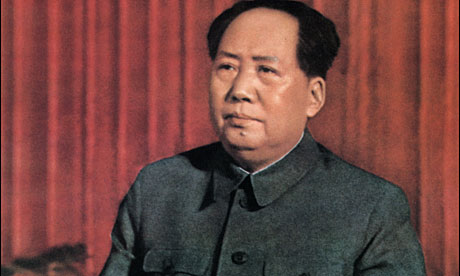
Chairman Mao – Chinese children are thriving in the UK educational system, despite a lack of Chinese figures on the Curriculum or as teachers.
Our Black activists will argue that it is not just for OUR childrens’ benefit, that Black heroes should be acknowledged in the school curriculum. It would also benefit the white kids to know that Black people have contributed something to this country, and achieved things outside of sporting success. But I would argue that this would be better demonstrated by our achievements in modern-day Britain, rather than harking back to historical figures from the Crimean War.
As we know, the Caribbean immigrants who came to the UK in the 50’s and 60’s came here looking to work for the White Man. Three generations later we are still completely reliant on ‘Mr White Man’ for our very survival. Conversely, many of those Asian immigrants who came from India and Africa in the 60s and 70s were self-reliant entrepreneurs servicing their own communities, not dependent on ‘Mr White Man’ for a job. When the Ugandan Asians were expelled by Idi Amin in 1972, they were only allowed to take two suitcases and the equivalent of £50 in cash out of the country. Though they arrived in Britain virtually penniless, they still had their entrepreneurial spirit and business sense intact. As one Ugandan immigrant supposedly observed to another at the time, “Don’t worry doctor, we will become rich here. They close their shops at 5pm!” Once in Britain these Asian-African immigrants built up many successful businesses, and it has been estimated that 30,000 jobs were created by 1000 Ugandan Asian immigrants who settled in Leicester. By the 1990’s several of these ‘poor immigrants’ had made it onto the Sunday Times Rich List. They clearly carried with them a very different mind-state than those Caribbean immigrants who came to Britain hoping to eek out a living as ‘beasts of burden’ working for the Post Office, or on London Transport, or in the NHS.
We see many examples of more recent ethnic immigrants to both the UK and US, after only 1 or 2 generations leaving the indigineous Blacks far behind, strangely unimcumbered by the racism and descrimination that indigineous Blacks complain prevent them from progressing. This was beautifully illustrated in Spike Lee’s masterpiece Do the Right Thing, when he showed the hostility of the neighbourhood’s Black residents to the newly arrived Korean shop keeper and his thriving business.
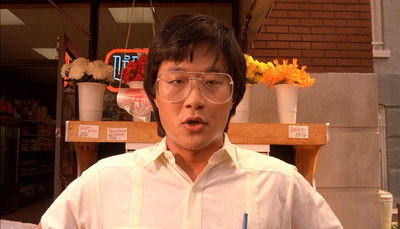
The Korean shop keeper in ‘Do The Right Thing’ built up his business, whilst the local Blacks sat around and complained about a lack of opportunities.
After relying on the host community to provide our childrens’ education, we then rely on them to provide their jobs. And if no job is forthcoming, then we rely on them for state benefits. And if we don’t feel we are getting our ‘fair share’, like spoilt children we are quick to scream out in complaint. Our Black Community Activists keep themselves very busy looking in every nook and cranny pointing out how, when and where White people are being racist. Black people are quick to cry racism, and in truth it’s understandable. We rely on the generosity of white people for our very survival. If white people don’t give us jobs, then we can’t work. If white people don’t feed us, then we can’t eat. Yes we know some white people are racist. Lets get over it, move on and prove them wrong with our stunning achievements and self-reliance, rather than constantly begging to be treated fairly. There is now a community organisation in this country called BARAC, which stands for Black Activists Rising Against Cuts. Their raison d’etre is to highlight the fact that the swathing cuts in benefits and services that the Coalition government is imposing on the country will disproportionately affect the Black communities and workers. Yes I’m aware that the Black community will be disproportionately affected by benefit cuts, but is it something we want to shout about? Something we want to campaign about, like living on benefits is a lifestyle choice for Black people? Surely their time and energy would be better spent setting up an organisation to help Black people get OFF benefits, rather than one which seeks to ensure they can continue to receive them? This dependency culture is something we should be working to eradicate, not working to perpetuate.
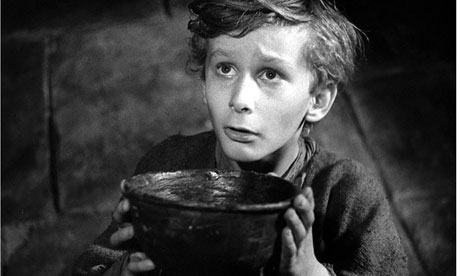
Like a Black version of Oliver Twist with the beggin bowl -“Please Mr White man, can I have some more?”
Recently I came across the most shocking example of this Black dependency culture. According to reports from South Africa, there are pregnant Black women who are deliberately drinking alcohol to excess, in order that their children will be born deformed and/or disabled, so they may claim disability benefits.
It was way back in 1968 that James Brown released ‘Say It Loud (I’m Black and I’m Proud)’. On it he sang “We demand the chance to do things for ourselves, /We’re tired of beating our head against the wall, and working for someone else.”
But too many Black people, rather than do things for themselves, would rather ask the white man to do it for them. The energy that we are expending, trying to convince Michael Gove to include some of our heroes in History lessons, would be better spent, setting up Saturday schools, or our own Free Schools. But no, we go begging to ‘Mr White Man’ to do it for us. ‘My Black children need to know their Black History, so please Mr White Man will you teach it to them, because I cannot do it myself?’ ‘My Black children need positive role models, so please Mr White man will you employ more Black Teachers because I cannot provide the role models for them myself?’ ‘Please Mr White Man will you give my children a job, because I have not been able to give them the skills to start their own business?’
By constantly begging the white man to do things for us that we should be doing for ourselves, we are not empowering our children, we are disempowering ourselves. As Angie Le Mar so artfully put in when I was engaged in a Twitter conversation with her about her new internet only sitcom, “Must we keep wishing and hoping? So much time has been lost, thinking people might do the right thing. Lets just do it ourselves!”
ends
FOOTNOTE:
Angie Le Mar’s new Web-com The Ryan Sisters is available to view now on You Tube. “http://<a href=”http://www.comedylately.co.uk/?p=2625″ rel=”bookmark” title=”Permanent Link to The Ryan Sisters”>The Ryan Sisters</a>
For more historical information about Black Britain check out www.blackpresence.co.uk
For a daily update on where, when and how white people are not giving us our fair share, there are too many organisations to mention!
Homeland, Idris Elba, and the damaging effect of Absentee fathers
Posted: November 28, 2012 in BlogsTags: absentee fathers, Black British actors in the US, black fathers, black mental illness, David Harewood, dead-beat dads, Idris Elba, teenage pregnancy
Like thousands of others, I am a fan of the TV series Homeland. I take particular pleasure in the success of Black British actor David Harewood, who plays CIA boss David Estes in the programme. Harewood was just another struggling Black actor frustrated by the lack of decent roles in the UK, till he went stateside to try his luck, and struck gold when he landed the high-profile part in this international hit of a series.
But he wasn’t the first to make such a move. A few frustrated thespians have been treading that path for the last decade or so, but the most high profile success has undoubtedly been enjoyed by Idris Elba, who hit the big time when he won the part of Stringer Bell in the cult US series The Wire. Elba was able to turn his success on American TV into an A-List movie career, going on to star in blockbusters like Ghost Rider, Thor, and Prometheus. Even Barack Obama was a fan of The Wire and Elba got invited to a White House reception. Because of his high profile success over the pond, Elba was able to return to the UK and be taken seriously enough to be allowed to executive produce his own cop drama for the BBC, Luther.
In previous blog posts I have advocated that Black men who are struggling to find success in the UK should consider emigrating to wherever opportunities are more plentiful. We are, after-all, only in this country because our parents or grandparents came here in search of jobs, and if those jobs have now dried up, then it only makes sense to move to where they now are.
But while I was patting myself on the back and looking at the success of Harewood and Elba as confirmation of my arguments, I remembered Courtney Ledbetter. Courtney came to this country from the Caribbean in the 1960’s and settled in London. He married and had four children, two boys and two girls, a perfect family one might think. But Courtney wasn’t satisfied. In the 70’s, despite this still being a relatively buoyant time for the UK economy, Courtney became dissatisfied with his life in London. He thought he could do better elsewhere, so like Harewood and Elba, he went off to make his fortune in North America – Canada to be precise. I’m not sure if the plan was for him to send money back to the UK for his family, or to send for them to join him once he had made it big. In the event he did neither. The money never came, and the contact dried up. Courtney never sent for his children, and he didn’t return to the UK. Instead he left his wife to raise those four children by herself. Like most single mothers she managed, but she struggled. Those four kids are now all middle-aged adults, their parents eventually divorcing and re-marrying, but the struggle to raise them was far more profound than just putting food in four hungry bellies and shoes on four pairs of growing feet. I know those four children (now adults) personally, and I can see the effect that the abandonment by their father had on them.
The eldest son, who was 16 at the time his father left, was least damaged. At that young age he had the role of ‘man-of-the-house’ thrust upon him. It made him determined and resilient, but old before his time. It also gave him a demon work-ethic that he now needs to provide for his own children, and errant nephew. Sadly, his desire to earn money meant that school work took a back seat, and he achieved far less academically then his intelligence would have allowed in more nurturing circumstances. The three younger siblings fared less well.
Whilst mother and eldest son were struggling to provide, the eldest daughter saw education as her way out. She focussed on her studies, did well at school and managed to make it to university. But after graduation she suffered a breakdown, and spent much of her twenties and the majority of the thirties in secure mental health units. I visited her in the latest in a long line of hospital units that have been her home, earlier this year. She was upbeat and looking forward to getting released back into the community. But after I left the building, I wept. I shed tears for her unrealised ambitions and her wasted life.
The middle daughter (perhaps looking for love from a surrogate father figure) had two children in quick succession whilst she was still in her teens, fathered by two equally unsuitable men. The strain of being a single mother so young, eventually resulted in her too having a mental breakdown. Mercifully, she managed to extricate herself from the clutches of institutional care after not too long, and manages to live an evenly pitched life as long as she continues to take her medication and avoids stress.
The youngest son, managed to keep out of institutionalised mental health care, but to my view is hanging onto his sanity by the tips of his fingers. He spends much of his unemployed days, in his rented flat, researching conspiracy theories and the impending fall of western society. When I stop by to visit him, he will warn me of the imminent collapse of the dollar and the euro, or show me videos that explain how to escape the surveillance of government agencies, or how to survive when Armageddon comes and running water and electricity can no longer be taken for granted.

Too many of us take sanctuary from the real challenges of everyday life by obsessing over conspiracy theories
This is the story of one family, four children whose lives have been damaged and potential unrealised, because of the actions of an irresponsible father and the blight of mental illness. But they are by no means unique. Absentee fathers, abandoned daughters looking for love too soon with unsuitable partners, and abandoned sons who walk around full of rage, are all too common sights in the Black community.
I know of a similar story with another Black family. The unmarried matriarch had her first son aged 14, and the second a few years later. Her first born ran away from home at 15 and was taken into care. From there he started on his criminal career that culminated in him being sentenced for 17 years for drugs and firearms possession. The second son didn’t sell drugs, but he certainly smoked them. So much so, that it led to cannabis psychosis, and he was regularly to be seen on the streets of South London talking loudly into a pocket calculator that he believed was a mobile phone. Eventually, he too was taken into psychiatric care.
One mother, two sons, no father…….two more wasted lives. I’m not sure who’s more to blame. The irresponsible men who see fatherhood as something that begins and ends at the point of conception, or the foolish mothers, who chose to have children with these ‘waste-men’, and though barely adults themselves, believe that they have the necessary skills to turn boys into men.
But its not just those on the periphery of society who are damaged by the abandonment of their fathers. Even those living apparently happy productive lives can be carrying such mental scars. There are many women carrying around ‘daddy issues’. Like those sisters in commited long-term relationships who cannot shake the feeling that someday their man might cheat on them/leave them, because thats what their Dad did. Even for myself, the fact that I never vote in elections, don’t support a football team, and don’t believe in God, I explain by asserting that I refuse to put my faith in any man (or group of men) for my welfare and happiness. Maybe that kind of faith only comes when one has had a father they could rely on.
The four Ledbetter children, and remarkably also the mother, have all apparently forgiven Courtney, but I haven’t. I didn’t live through the financial and emotional struggles that they had to suffer as children. (My single mother only had one child to raise). I don’t even know their father, but I am angry at what he did, because I can see, perhaps more clearly than they can, the long lasting damage that his actions had on his children.
But as the saying goes, a wise man can learn more from a foolish answer, than a fool can learn from a wise one. I use ‘waste-men’ like Courtney Ledbetter as an example in my own life: an example of what NOT to do. It is because of the example of men like him that I vowed never to abandon my children. (I have their dates of birth boldly tattooed on both of my forearms, so it would be impossible to forget them even if I wanted to.) It is due to my dedication to my children that I left London and put my media career on hold for a decade.
So follow the example of Idris Elba and David Harewood if you want to. Go to whatever country you feel you need to, to make your fortune. Just don’t forget about your children. Never, ever abandon your children.
Ends
Back to Africa Part 2 – The Returnees
Posted: October 7, 2012 in BlogsTags: Africa's growing middle class, aquaponic farming, back to africa, black economic migrants, business opportunities in Africa
In my previous posting Back To Africa Part 1 – Elmina Castle, Cultural Tourism and the Psychological Scars of Slavery, I related my harrowing visit to the slave fort on Ghana’s Cape coast, and the long-lasting damage that the Transatlantic Slave Trade visited on Blacks in the diaspora. I also recalled how far removed from Africans born on the continent I felt on that day.
But that traumatic day has not put me off from returning to Africa. It has merely modified my perspective. What I hope readers gain from the previous posting, is that we Blacks in the diaspora cannot go back to Africa with some romantic notion of returning to the motherland to be reunited with our long lost brothers, like Rastafarians ‘returning’ to Ethopia. We cannot regain what we lost 400 years ago. What I am advocating is a return to Africa for economic not romantic motives.
We Blacks in the diaspora are spread all over the globe for economic reasons. We were taken from Africa to work on plantations in the Caribbean and North America. Many of us got our first taste of Europe when we dutiful fought for our masters in the Second World War, and were bitterly disappointed when after the war ended we returned home to America and the Caribbean to resume lives as second-class citizens. My own forefathers left the Caribbean in the 1950’s answering the call from the ‘mother country’ to help rebuild Britain after the war. Caribbean immigrants helped to rebuild cities devastated by the Blitz, helped to staff the newly conceived National Health Service, and found jobs on public transport, and in the Post Office. But that was a long time ago.
Our parents and grandparents of the Windrush generation had accepted the menial jobs and daily humiliations of life in Britain with the hope of giving their children a better life. They believed that if their children had the benefit of an English education they would enjoy the same life chances as the indigenous English. Sadly it didn’t turn out that way. Caribbean immigrants coming to Britain in the 50s and 60s were coming to a buoyant labour market, to take up jobs in an expanding economy that had recruited them for jobs for which there was no local competition. But the recession of the early 1980s reduced our prospects to no better than those of whites, and the recession of the early 1990s reduced our rate to well below that of whites. Despite what our parents and grandparents had hoped, prospects for the second and third generation are actually worse than they were for their pioneer immigrant generation. In short the immigrant bubble has burst and this, once desperately needed foreign workforce, is now surplus to requirements. We now have two generations of Black people born in Britain with the benefit of a English education, often to University level, but still unable to find employment. The unemployment rate for young Black males in the UK is now 55%, a figure which has almost doubled since 2008. This wasted generation now fill the British prisons and psychiatric hospitals, or run wild on the streets murdering other Black boys, or rioting and looting because they feel they have no hope for advancement and no stake in the country of their birth.

Young Black men in Britain and America feel betrayed and abandoned and are lashing out in anger and frustration.
But it needn’t be this way. Though the opportunities may have dried up in the UK, opportunities abound in Africa. This lost generation could be directing their energies to building up the economies of the land of their forefathers, rather than turning their hurt, alienation and anger inwards or lashing out at everything around them. In short, rather than sitting down wasting your life growing old and bitter in Britain, go West young man and grow rich in Africa.
In a previous blog entitled The Fall of the West and the Rise of the Rest, I contrasted the financial crisis in the Eurozone with the rise of African economies. In September of this year I went on a one week fact finding mission to Ghana to see for myself. This was not my first time on the continent, but it was the first time I had gone looking for economic opportunities. Below are the results of my reconnaissance mission.
First of all it is important for any potential returnees to realise that this is not the same scenario as when our Grandparents came to Britain in the 50s. Don’t go to Africa looking for a job, go looking for a business opportunity.
The other thing that all entrepreneurs must consider wherever they set up business is, ‘who are my customers?
To answer this I will breakdown modern Ghanian society. As it was explained to me there are five different communities in Accra.
- the Ghanian elite (the political class, the super-rich, gold traders etc.) who run the country.
- The ex-pat community (which consists of foreign business people, aid workers, NGOs, charity workers, people at the IMF, World Bank etc) who really have no interest in the country and are here merely to do a job for a few years and then leave.
- The Ghanian professional class –the doctors, lawyers etc,
- the everyday working Ghanian people,
- the returnees – Black people from across diaspora who have chosen to settle here.
From my quick assessment, the client base of any returnee must be the elites, the ex-pats and the returnees. These groups are most likely to have spent time in the West, and in this time they will have developed a taste for goods and services that we take for granted here, but are simply not available over there. Take for example Tracey.
Abena is of Ghanian parentage, but grew up in the US where she worked in finance. That’s what she’s been doing since she returned to Ghana, but like so many returnees, once settling here she has seen a gap in the market – Laundromats! Very few people have washing machines in Ghana. The poor wash their clothes by hand, and the rich pay the poor to wash their clothes by hand. Young professionals have neither the time nor the inclination to wash all their dirty laundry by hand, but may not have staff to do it for them, but there are no laundrettes that they can go to. Hence Abena plans to quit her job in finance later in the year and open the first in what she hopes will be a chain of laundrettes. A very simple idea that would have no hope of success in the UK or US, but apparently can be a major money-spinner in developing Ghana.
What follows are more stories of some of the returnees I met whilst out there.
Giles is half Ghanian and used to work in finance and media in London, but couldn’t stand the weather, and the stress, and the 15 hour work days, so when holidaying here he looked for business opportunities, and eventually decided on Pest control. Not at all glamorous, but apparently very lucrative.
Kofi is, Ghanian born, English educated, who was involved in the music business in the UK and the States for many years before returning to Ghana to help run his father’s now successful consultancy firm. With his music industry experience Kofi revealed to me another business opportunity. Apparently there is no organised collection of music royalties in Africa – a job that is done in the UK by the PRS. All those clubs, bars, and hotels playing western music are not paying for the privilege, as they would have to in the West. Kofi is also actively trying to encourage more Black UK and American music stars to come to Ghana to perform, and if the money they would make from performing in one country is not enough, then why not do a continent wide tour – Ghana, Nigeria, South Africa etc. in order to keep the prices of the tickets down, get sponsorship from those Western companies who are trying to expand into Africa.
George was born in Ghana and lived there until he was 15. As his father was an Ambassador in Libya he completed his education in Malta. In the 90’s he ended up working in the hospitality industry in London for , managing upmarket joints like Smollenskys, China House, and finally Hakkasan – a high pressure job with long hours and big expectations from bosses and big monied investors who would not tolerate failure. But the pressure became intolerable and he decided to quit, sold all his suits, gave away his shoes and moved back to Ghana to set up a guest house. He now wears t-shirts and sandals to work everyday, earns considerably less money than he did back then, but has a much better quality of life.
As you will have no doubt noticed all of the case studies I have related have family links in Ghana. What about those who have no family links with the country? If you are going to go to Africa why choose Ghana in preference to any other African country? As it was explained to me, there are other thriving economies in Africa, such as South Africa and Nigeria, but they are racked with political instability and crime. Just this year we’ve seen the terrorist attacks of Boko Haram in Nigeria and the Lomin Mine massacre in South Africa. Meanwhile, after the death of the Ghanian president, power was handled over peacefully and without incident to his V.P. If you’re rich in South Africa or Nigeria, you can’t leave your house without bodyguards and your children must be driven to school for fear of kidnapping. Ghana by comparison is relatively crime free. Here you are free to grown rich, and enjoy your money without fear of someone trying to take it or your life from you.
I also met Americans Richard and Cassandra who have set up an aqua-ponic farm. Under specially constructed tents kept constantly watered by the over-flow from a fish-tank and fertilised with fish waste, they grow cherry tomatoes. Apparently tomatoes are hard to get in Ghana, and this farm is set to make them millionaires. It seems strange to think that one could become a millionaire from something that looks like little more than a high tech allotment plot, but this is Africa, it is still a developing continent with many opportunities still available.
A successful returnee I met on my last night, was Ghanian-born Kwaku. Kwaku had been working as a Gold trader in Europe, when he then thought ‘why not set up shop in the country of his birth, where the resource he was trading in is mined from in the first place. Apparently at first it was a struggle, but after seven hard years, he had built up a successful business and considerable fortune. We talked for most of the evening on the pros and cons of living in Ghana. The inefficient police force, the inadequate health care system, the political corruption etc, but none of this put me off. After all, this softly spoken, mild mannered Black man that I was sitting next to is a millionaire, who has made his fortune in Ghana. To me, that fact speaks louder than any of his words.
Are you inspired yet? Throw away that X-box controller, dash ‘way the TV remote, tell you’re slave driver boss that you’ve got somewhere he can kiss, tell the Job Centre to stick their job Seekers Allowance! Rise up my mighty people, awake from your coma – opportunity awaits in Africa!
Elmina Castle, Cultural Tourism and the lasting Psychological Scars of Slavery.
Posted: October 6, 2012 in BlogsTags: black self hatred, Elmina castle, jewish holocaust, mental slavery, michael jackson's Black self hatred, slave fort, transatlantic slave trade
In September of this year I went on a one week fact finding mission to Ghana. The main purpose of my mission was to look for economic opportunities, but I also did a bit of cultural tourism whilst there. For the first three days I was in love with Africa – we were on honeymoon. On the fourth day we had our first big argument. And whenever you have a big argument in the early stages of a relationship, you begin to question whether the relationship has a future.
Elimina Castle is the largest and most intact slave fort in existence. The group of 10 or 12 visitors who did the tour with me were all Black, and seemed to comprise of a couple of local Ghanians who had nipped over during their lunch break, a couple of African families on holiday from other nations, and a few Blacks from the diaspora like myself. The tour lasts for about an hour, and starts with a short look around a museum. The museum takes a strange approach, with most of the information and exhibits focussing on the local chiefs and local history, with the slave trade being just a footnote. I couldn’t quite work out what the traditions of local chiefs had to do with this fort built by the Portugese. Presumably, it was these local chiefs who were exchanging guns, alcohol and tobacco for Africans. So it seemed strange to me that the museum would pay tribute to these men, but that was just the beginning of my psychological difficulties of the day.
Once the tour got going we were taken around the slave dungeons, shown the cell where white soldiers were put for a few hours as a punishment for raping female slaves, then shown the cell were rebellious slaves were thrown in to die. We were shown the dungeon where female slaves were kept, shackled together, lying in their own faeces, urine and menstrual blood – the same dungeon where they had to eat. We were shown the balcony where the commanding officer would stand and survey the female slaves before picking one out, to be washed, fed, and taken up to his quarters to be raped. Our tour guide told us how the fort was first controlled by the Dutch, then taken over by the British. He told us how this trade in Africans went on for over 200 years, and yet as he rolled off these historical facts and figures, he didn’t seem to be sharing the emotional pain I was feeling. Infact he didn’t even seem to be aware that some of the group were in pain. He related the horrors of this Black holocaust with the same nonchalance as an English tour guide taking Japanese tourists around a stately home. Was it because he worked here and had grown blasé about the horror he was describing, or was it because as a born and raised African, he didn’t share that psychological pain, as his ancestors did not actually experience it? The same lack of empathy was displayed by some of the other visitors born on the continent. One local man actually took a call on his mobile during the tour, whilst the African women on the gate loudly joked and argued. I wondered, would this same lack of solemnity/respect be shown at a German concentration camp like Auschwitz? Would the tour guide take you through the gas chambers where Jews were exterminated, and then take you straight into the gift shop where you could purchase ‘Welcome to Auschwitz’ postcards? But this is basically what happened to us after being shown the small hole through which enslaved Africans were shoved onto the waiting slave ships – the door of no-return. After seeing this, I skipped the gift shop part and went outside to take a moment by myself.
At this point I had thought the that tour was over, but no, after a short break to allow visitors to buy books, and DVD’s on Kwame Nkrumah and the history of Ghana, the tour resumed to show us the kitchens where the food was cooked, and another opportunity to buy paintings and carvings. I was wondering ‘why would I want to see the kitchens when I have just seen the door of no return?’ but kept my thoughts to myself. At the end of the tour there was a visitor’s book to leave comments, but at that point at felt unable to put my disgust into words.
But the horror did not stop once leaving the fort. Outside, we were assailed once again by the hawkers trying to sell souvenir tat, or obtain sponsorship for their local football team. These kids have probably never been inside Elmina, and they probably didn’t learn about slavery in school (if they could afford to go to school). But surely the educated people in the Ministry of Tourism are aware. Surely the staff who work at Elimina are aware? But no, no consideration is given to the feelings of those who’s ancestors died in this Black Holocaust.
In all of my four trips to Africa, I have never felt more distant, more further removed from native Africans. The sad and shocking truth that I learnt in my time in Ghana, that was brought staggeringly home to me in Elmina castle, is that we Blacks in the diaspora, are no longer Africans. It doesn’t matter how many books we read, or if we choose to trace our ancestors and change our names, or learn an African language, or wear traditional clothes, we are still NOT African. That 400 year process that began with slavery, and continued with colonisation and the racial discrimination which is an integral part of living in the West, has changed us. We think differently. We are different. For Africans, slavery was just one chapter in their long, long history, which even if removed, wouldn’t make that much difference. Whilst we in the diaspora feel that slavery was the end of our history as proud Africans and beginning of our existence as servants: the beginning of a process in which we were taught to hate ourselves and worship our enslaver. A process where our name, our language, our culture and religion were forcibly taken from us, and replaced with those of our oppressor.
And though slavery was abolished 200 years ago, it is a process which continues to affect how we think and behave to this day. We are the products of slavery, the victims of a racist idealogy, we are a people without knowledge of our culture or our homeland. Our history is one of oppression and servitude. And then people wonder why we under achieve. We were created out of slavery and we are now defined by racism. This is something that white people, and yes even Africans on the continent cannot understand. They tell us we should get over it. But that’s easy for them to say.
No one dares to tell the Jews to get over the Holocaust, but their holocaust does not even come close to the one suffered by us. Imagine if you will, that Hitler didn’t lose World War II, and the Nazi’s were allowed to continue with their wicked Final Solution to the ‘Jewish Problem’. But instead of exterminating the Jews, they decided to keep them alive in those concentration camps and turn them into beast of burden. Imagine that the Germans didn’t lose in 1945 but continued their reign over Europe for another 200 years.
Jews in the concentration camps lived and died of old age, new generations born never knowing life on the outside. The Nazi guards who rule over them don’t allow them to keep their Jewish names, or speak their own language, or follow their own religion, but instead take Germanic names, speak only German, and study only German scholars taught in concentration camp schools by Nazi school teachers.
In these concentration camp schools the young Jewish kids, are taught to hate themselves and revere the Aryan race. All knowledge of Jewish history and Jewish achievement are blotted out, and German historical achievements are lauded. The females are forcibly raped by their Nazi persecutors and their half German/half Jewish offspring are given preferential treatment taking positions of authority over their fully Jewish relatives once they come of age.
And this process goes on for generation after generation for two hundred years, until those concentration camp inmates are finally set free. What a confused psychologically damaged set of people would step out of those gates. Could they even call themselves Jewish anymore? Would they want to? Well this is the state of the descendants of African slaves. This why we despise our African features, and bleach our skin, and straighten our hair, and struggle to maintain stable family units. And they tell us to get over it. The wonder is not why do we underachieve, but how we didn’t all go completely mad?
So when we in the diaspora go back to Africa, we have in our hearts and minds that we are returning to the motherland to be reunited with our long lost brothers. But they don’t see us like that. They see us as cash cows, walking ATMs, more westerners ready to be hustled. Because they know that we have some emotional attachment to the continent, they can use that as a tool to leverage more money out of us. And whilst we go back to Africa trying to recapture what we have lost, Africans wish they could swop places with us and have what we have.

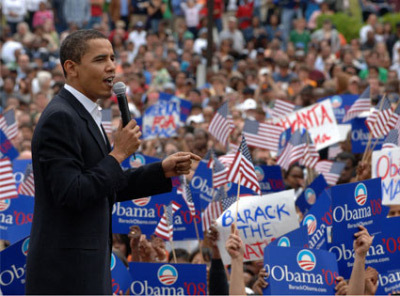
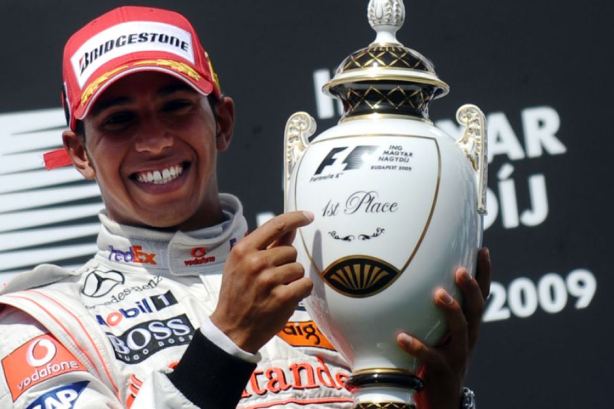
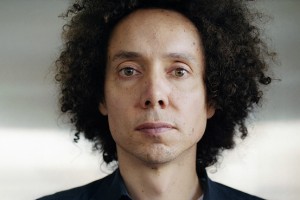
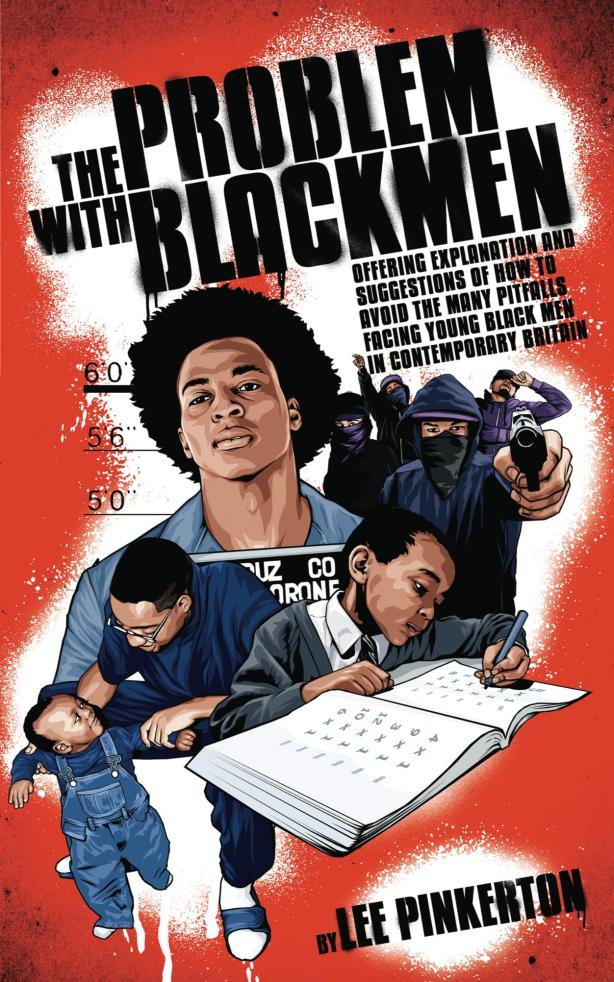
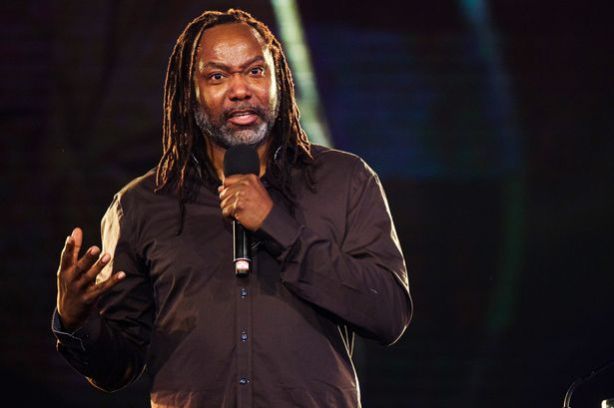
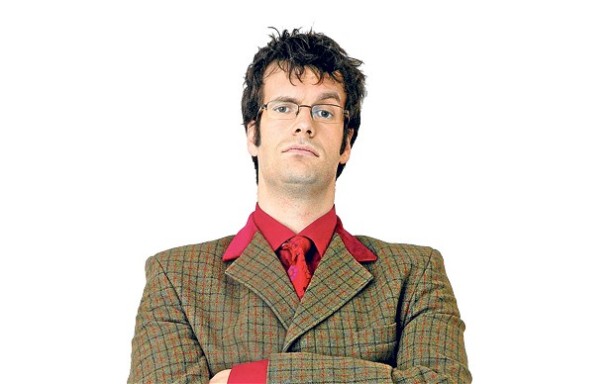
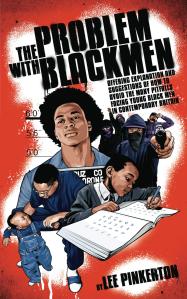
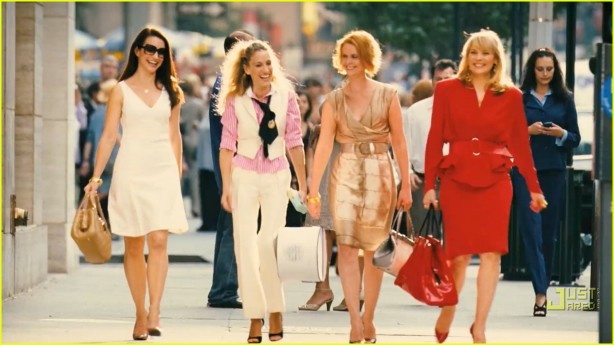
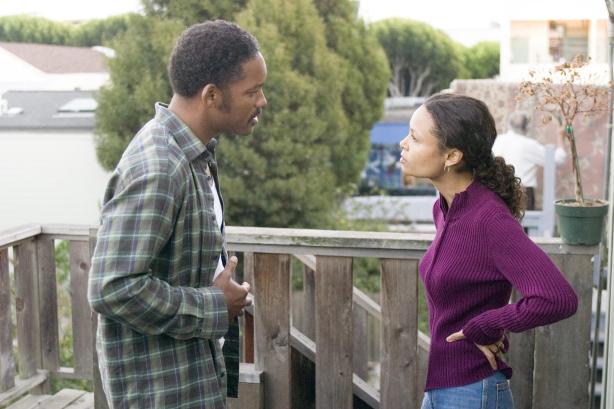
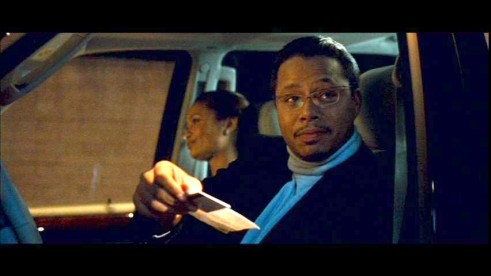
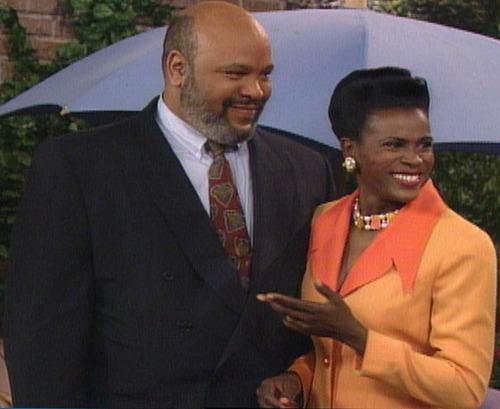
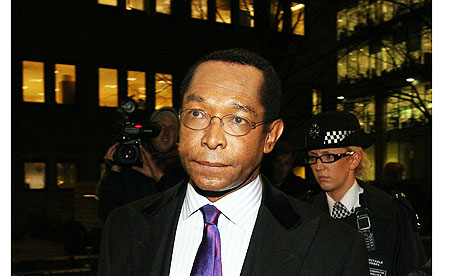
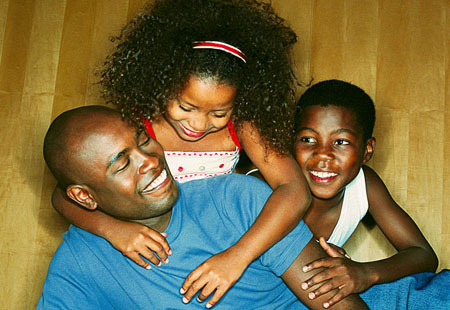

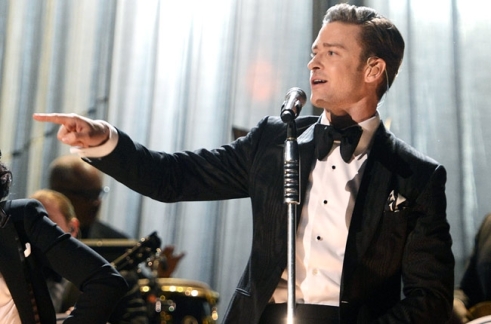
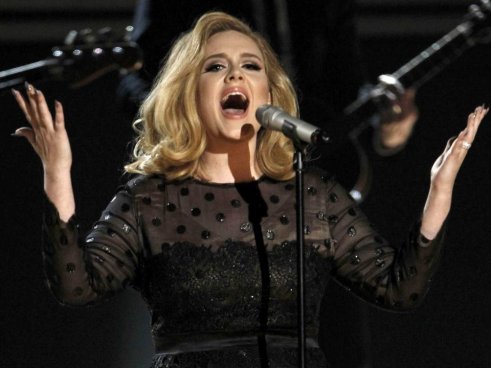
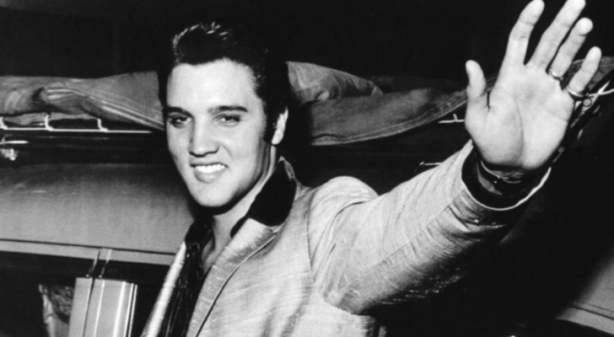
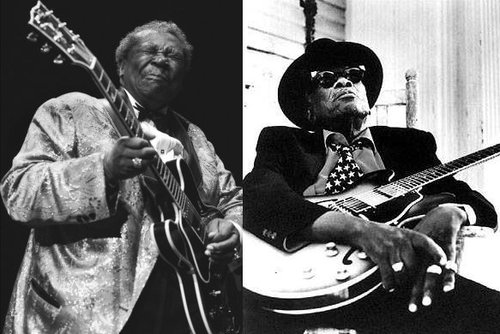
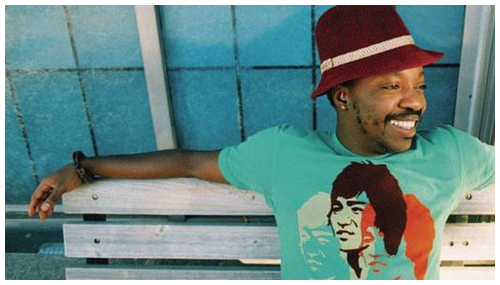
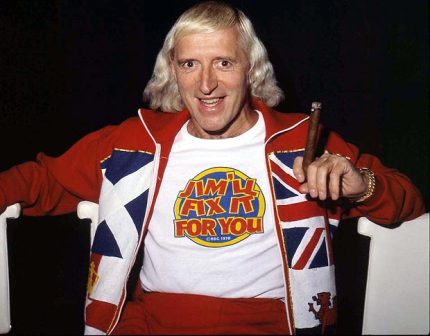

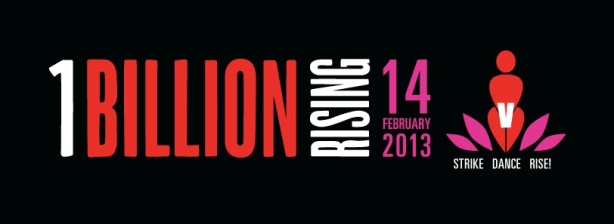
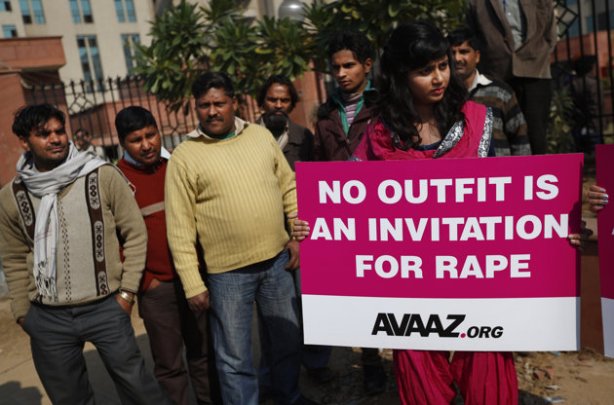


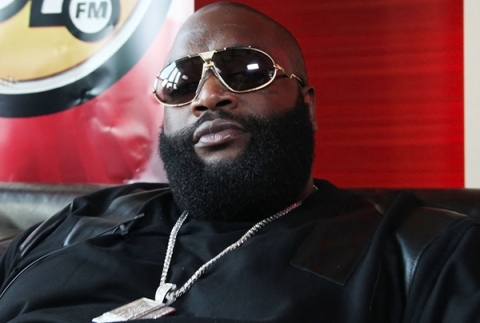
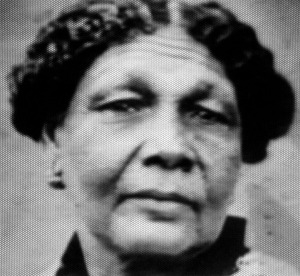
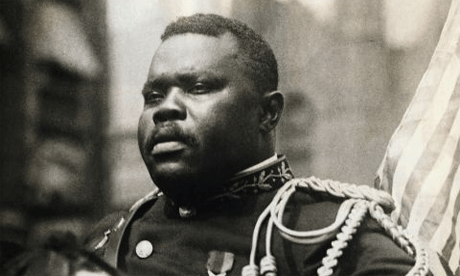
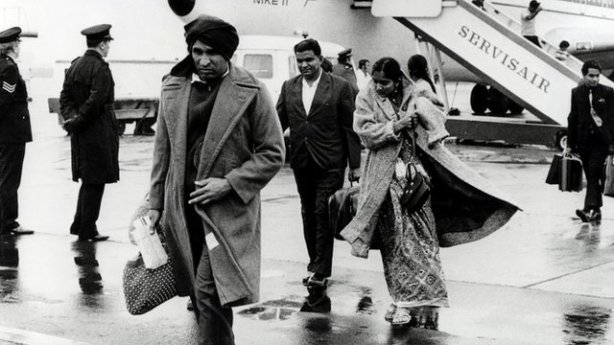













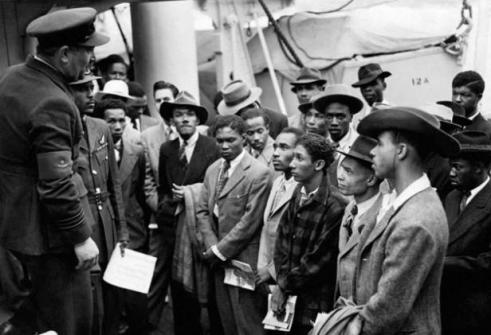
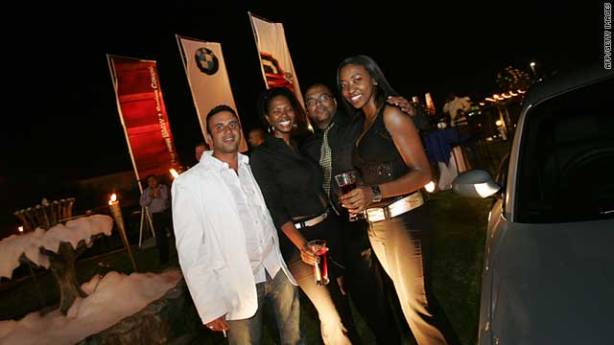


















No comments:
Post a Comment